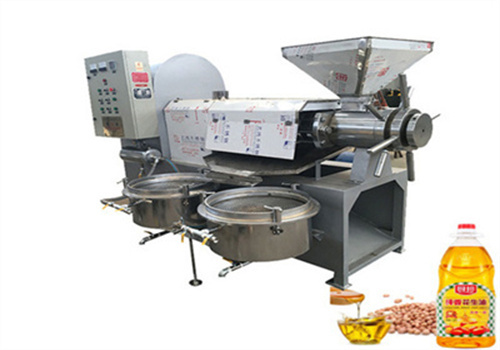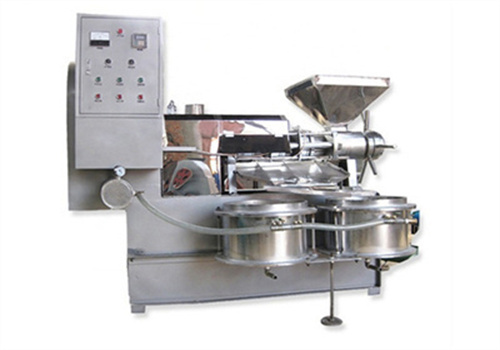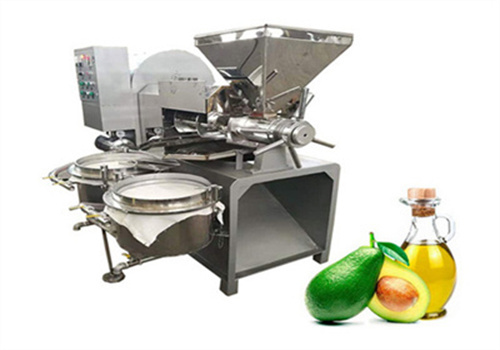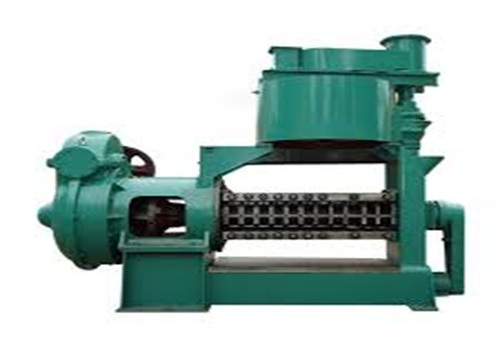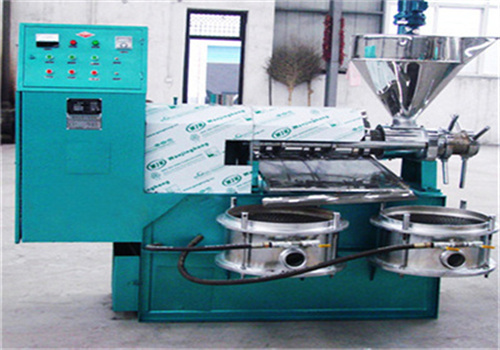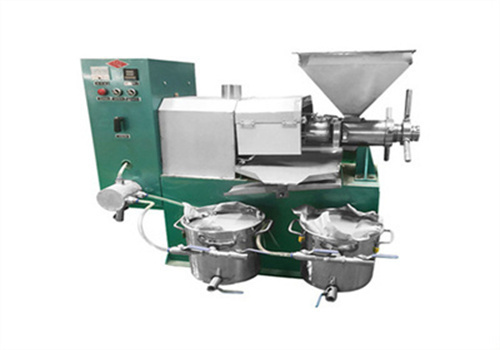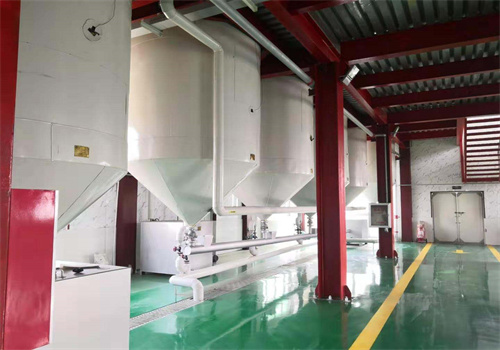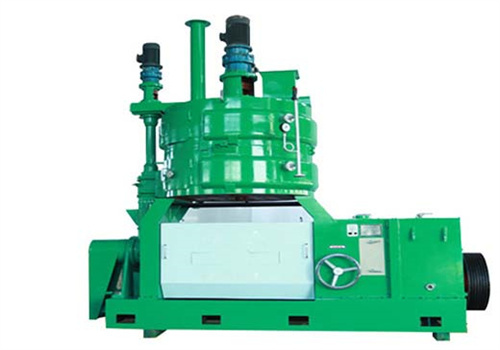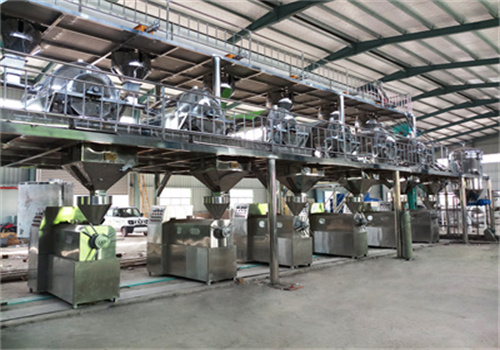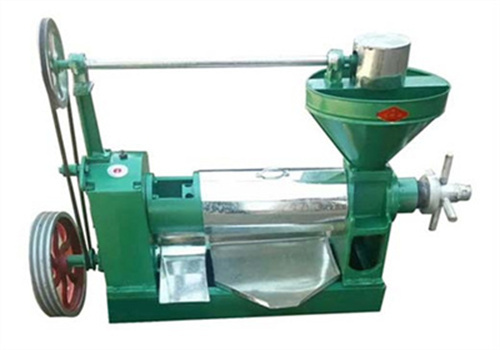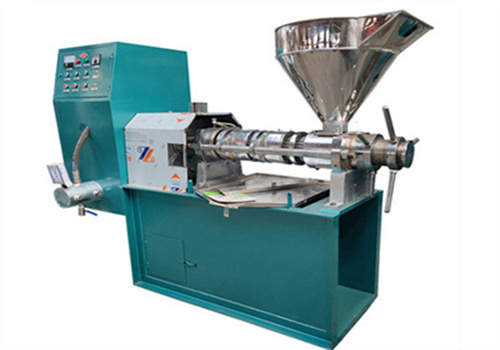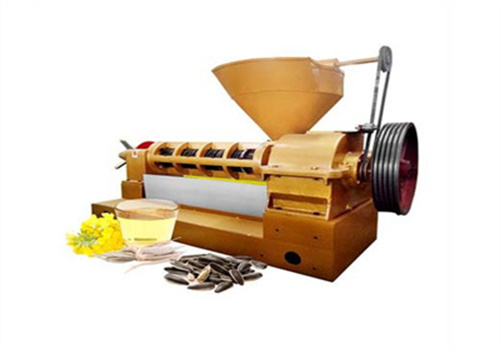hot and cold press type vegetable oil press
hot and cold press type vegetable oil press
| Processing Capacity | 10-25 tpd |
| Voltage | 380V |
| Keyword | vegetable oil press machine |
| Power | 11-15kw |
| Overall dimensions | 2600*1000*2450mm |
| MOQ | 1 set |
| Weight | 1042kg |
| Custom Service | Provide |
| Specification | ISO9001 |
| Advantage | Top brand |
| After-sales Service | 7*24 Hours Online Service |
the difference between cold pressed oil and hot pressed oil
cold pressed oil is all natural and avoids the adverse effects of traditional high temperature pressing. cold pressed oil retains the natural flavor and color of the oil raw materials, and also retains the physiological active agents of edible oil (vitamin e has anti-aging effects, sterols have skin care effects and enhance human metabolism).
large cold pressing and hot pressing of edible oil with oil as raw materials,there are two types of oil pressing: cold pressing and hot pressing. as the name suggests, cold pressing is pressing at low temperature, and oil seeds can be pressed without baking. hot pressing is pressing at high temperature, and oil seeds are pressed after baking. there are special oil seed roasting machines available.
advantages and disadvantages of cold pressing and hot pressing
cold pressed oil has good color and is relatively light, but the oil is not fragrant and does not get irritated. the disadvantage is that the oil yield is not high, and most raw materials are not suitable for cold pressing; generally, the oil smoke of cold pressing is low, the water content is unstable, and it is not conducive to long-term storage.
small difference between cold extraction and hot extraction,cold pressed oil is mainly used as a food ingredient for human consumption. hot pressed oil is mainly used in the production industries like varnish, paint, detergent, soap etc. cold pressed oil is pure, nutritious and hygienic. hot pressed oil lacks purity and nutritional quality as it is heat treated. it may even contain toxic substances.
comparison of cold pressed and hot pressed ambuja oil
oil whether cold pressed or hot pressed looks the same and one cannot tell them apart just by the looks or even by tasting them in case of consumption. so, how to differentiate between the twoferentabout it.
high quality hot pressed oil vs cold pressed oil made by oil press,as the name implies, cold pressing means pressing at low temperature, and the oilseeds can be pressed without baking. hot pressing means pressing at high temperature, and the oilseeds are pressed after baking. then, let’s talk about this issue from the following three aspects.
comparison of cold pressed vs hot pressed oil
do you know the difference between cold pressed and hot pressed oil manufacturing various types of oil press machines. cold pressed and hot pressed oilseeds are introduced separately.
factory price gorillarock commercial hot and cold press,the oil press has various functions and can press a variety of raw materials such as sunflower seeds, vegetable seeds, nuts, soybeans, etc. the equipment supports hot and cold pressing. depending on the type of raw material, the extraction rate can be up to 50%.
screw oil cold and hot press
1. introduction to screw oil cold and hot press: qi’e machinery 6yl series new cold and hot press multifunctional screw oil press is the earliest fully automatic oil press developed in china. the machine can be fully automatically operated, integrating heating, extraction and filtration.
low price laboratory screw press for vegetable oil pressing website,the french l 250 mechanical screw press is used for laboratory, pilot scale and small scale vegetable oil extraction. features include cold pressing, water cooling and precise control to achieve hexane-free extraction. the screw press is suitable for more than twenty kinds of oil crops including rapeseed, peanuts, soybeans, pepper seeds, sunflower seeds, palm kernels, hemp seeds, etc.
hot and cold oil press in south africa
the m70 precision cold press oil press can extract 85% to 95% of oil from plant matter under the “cold pressing” requirement. what is the gto 101 oil press known for providing the best quality oil, which is pure and edible and can be used in large and small industries or sectors.
high capacity home and commercial oil press, hot and cold oil discharge,affordable 1000 watt 110v 220v oil mill supports hot and cold pressing methods, can press 6-9 kg of raw materials per hour, suitable for home and business use, high performance industrial motor, oil press can run continuously for 24 hours, built-in thermostat and
comparison of hot and cold pressed juice processing
cold pressed juice processing includes fresh fruit washing, preparation, juice cold extraction, filtration, bottling, hpp treatment and packagingwelcome to contact us, our professional engineers can customize solutions for you according to your needs. youtube facebook whatsapp linkedin wechat
best selling hot-pressed oil vs. cold-pressed oil! basic overview,hi, hot-pressed oil vs. cold-pressed oil – basic overview the article is well written and has helped me a lot. let me share with you a product that helped my mom lose 62 pounds of raw fat. leave a reply
the effect of hot and cold pressing process on volatile substances
concentration of volatile compounds from hot and cold pressed peanut oil by hs spme and analysis by gc mso. in this study, 101 volatile substances were identified in the hot-pressed peanut oil samples, mainly including pyrazines, aldehydes, furans, alcohols and pyrroles, among which the characteristic flavor compounds presented fresh, fatty, nutty and roasted flavors.
the cold truth: uncovering the meaning of cold-pressed oil,the difference between cold-pressed oil and other types of oil cold-pressed oil differs from other types of oil in several ways. some of the key differences include:refined oils: refined oils are extracted using heat and chemicals, which can damage the natural properties of the oil.
the difference between hot pressed and cold pressed newji
when it comes to extracting juices and oils from fruits and vegetables, the terms “hot pressed” and “cold pressed” are often used. it is crucial to understand the difference between the two, especially if you are keen on maximizing the nutritional value and flavor of your produce.
cold pressed vs hot pressed oils: which is better,cold pressed vs hot pressed oils processing techniquescold pressed oils are extracted by pressing seeds, nuts, or vegetables using low or no heat during the process.
